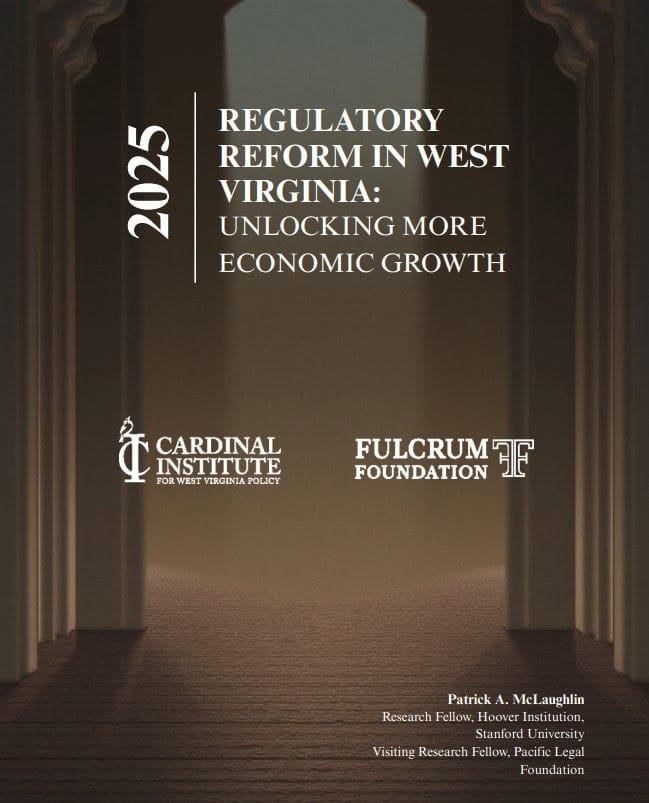
CONfined: How Bureaucratic Barriers Stifle Rural Healthcare
CONfined: How Bureaucratic Barriers Stifle Rural Healthcare
An hour or more trip to a health facility, critical medical equipment out of reach, healthcare innovation smothered. Sadly, this is not a dystopian future—these are symptoms of the web of bureaucracy that has infected West Virginia healthcare. The culprit? Certificate of Need (CON) laws—a relic of the past that continues to choke the lifeblood of rural healthcare.
CON imposes unnecessary bureaucratic barriers on healthcare providers that seek to expand or establish an array of health services. Applied nationally by the federal government in 1974, CON was touted as a prevention of “redundant” facilities. However, these laws have proven to be barriers that block progress and deny access to care. CON laws have devolved into protectionist policies that harm competition, restrict innovation, and deny critical care to rural communities. So much is the case that the federal government repealed their mandate in 1986 and, since the Reagan Administration, has advocated that states follow suit. Full repeal is not just necessary—it is the only path forward.
Laws that mandate CON processes require healthcare providers to obtain state approval before opening new facilities, expanding existing ones, or acquiring medical equipment. The application process is lengthy, expensive, and contentious, as existing providers can, and frequently, challenge new entrants. Unlike the large hospital systems, which have the resources to navigate the bureaucracy of CON, smaller facilities and entrepreneurs do not. Therefore, in rural West Virginia, these policies result in limited healthcare access. Without the ability to establish or expand clinics, hospitals, and other services free from government impediment, communities remain underserved and residents must travel for treatment—or forgo care altogether.
In a rural market, this can mean a single hospital for an entire region. And, with no competition to incentivize improvements, the quality of care idles, and costs rise, making limited options even more unattainable. The lack of competition then disproportionately harms residents who are more likely to rely on local health services, such as low-income earners and senior citizens. Moreover, delays and difficulties caused by an artificial market can lead to life-threatening consequences in the case of medical emergencies.
Proponents of CON laws reason that these regulations help control healthcare costs by preventing the overbuilding of facilities and services. Yet, numerous studies have debunked this claim. According to research from the Mercatus Center, states without CON generally experience lower healthcare costs and better health outcomes than states with CON. In rural areas, the absence of competition—not an overabundance of facilities—is the cost driver.
If a clinic is looking to add an imaging machine, they may be denied a CON because a larger hospital network in the closest city already offers the service. Therefore, patients are forced to travel longer distances for diagnostics, thereby incurring higher transportation costs and delaying critical health diagnoses. Scenarios such as these undermine the very purpose of healthcare.
To better healthcare in our state and rural areas, we must repeal CON laws. West Virginia will encourage new healthcare providers to enter, bringing fresh ideas and improving existing services. This may include telemedicine, mobile clinics, or small specialty facilities tailored to rural needs—innovations that are currently thwarted by CON’s regulatory red tape.
CON is a relic of a bygone era, ill-suited to the realities of modern healthcare delivery. These regulations perpetuate monopolies, restrict access, and fail to control costs, all while harming the communities they claim to protect. Because of this, incremental reforms to CON are wholly insufficient. The fundamental flaws of CON regulations cannot be patched through exemptions or piecemeal adjustments. To begin improving rural health outcomes, West Virginia must fully repeal CON laws to allow a truly competitive health market to flourish. Thus, the only viable path forward is a full repeal of CON. Through elimination, West Virginia can empower rural healthcare providers to deliver high-quality, accessible, and affordable care that every resident deserves.








